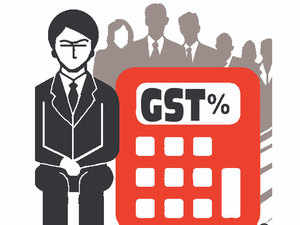NEW DELHI: In what could radically transform the indirect tax administration system and the way business is conducted, India is looking at the possibility of introducing electronic invoicing under goods and services tax.
If the country adopts the system, businesses will likely have to issue invoices, or bills, directly via the GST Network, and the data will be available to the authorities right away.
The GST Council has set up a committee to look into the feasibility of e-invoicing. It will also study the systems in place in other countries, such as South Korea and some from Latin America.
The move comes as the new single tax regime, which took effect on July 1, 2017, has seen a rise in incidents of evasion. The GST Council has taken a number of measures, such as introduction of electronic way bills (e-way), to clamp down on tax evasion.
Tax experts say e-invoicing can be effective in tackling evasion.
“E-invoicing as a concept looks like a good mechanism to check tax evasion and also ease the compliance burden on businesses,” said Pratik Jain, national leader, indirect taxes, PwC.
Since the invoices will be issued via GSTN, there will not be a separate need to update information.
Evasion, however, primarily takes place in the B2C segment and one will need to find ways to incentivise customers to insist on invoices, particularly in case of services where the possibility of tax evasion is more, Jain said.
Technological and infrastructural aspects would become very important, Jain said, adding that the timing and phasing in of this initiative was extremely critical given that GST was now somewhat stabilising.
The panel that will consider this filing includes GSTN chief executive Prakash Kumar, GST officials from state and central governments as members, and GST Council special secretary Rajeev Ranjan as the convenor.
Published On : 27-04-2019
Source : Economic Times

